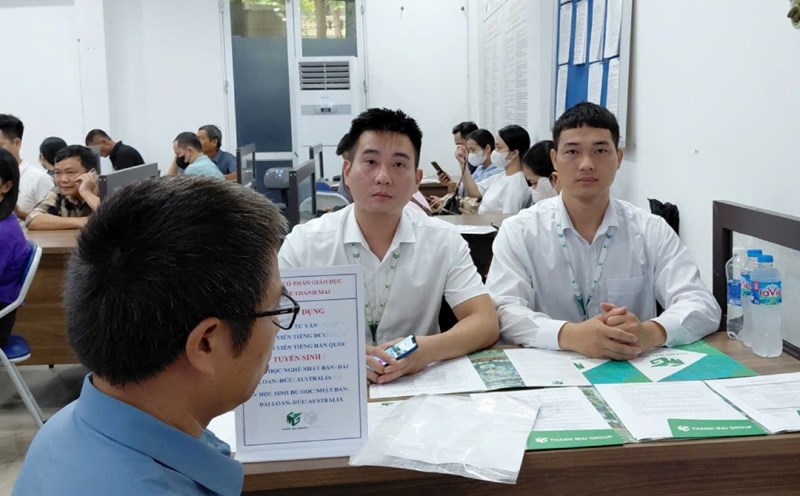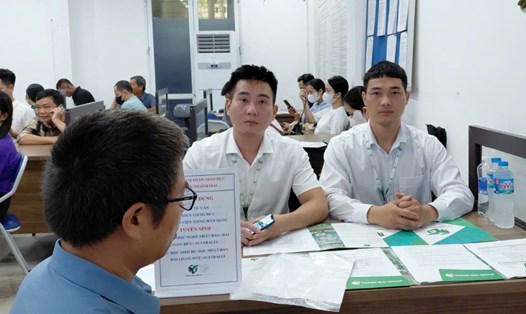Ms. Bui Thi Ha (from Nga Son commune, Thanh Hoa) came to Hanoi to work in 2017, right after graduating from high school.
At that time, Ms. Ha was introduced by relatives to work as a garment factory worker in Ha Dong ward (Hanoi). After 2 years of working, Ms. Ha lost her job because the company had reduced orders. "I was not fired because I was in the group of elderly workers but because I had the worst skills. At that time, people evaluated to choose 5 people with the lowest productivity allowance in the last year. I was in this group so I was fired, said Ms. Ha.
After losing her job, Ms. Ha continued to apply for unskilled, simple jobs such as supermarket staff, clothing sales staff... After 1 year, her income was not enough to cover expensive expenses, Ms. Ha returned to her hometown to work in the fields with her family.
In April 2024, Ms. Ha returned to Hanoi and applied to work at a garment factory in Gia Lam commune, with a total salary and allowances of about 8 million VND/month. In May 2025, Ms. Ha lost her job again because the company had cut off orders.
Since then, Ms. Ha has applied for unemployment insurance and has been looking for a new job, maintaining her activities as an hourly domestic helper introduced by acquaintances.
Ms. Nguyen Thi Lan Huong - former Director of the Institute of Social Labor Science analyzed that the main reason why workers find it difficult to ask for, or even cannot find a job is lack of qualifications and skills.
"Many people who are trained are only theoretical and have never participated in internships; the group of people who are not trained and do not have any professional qualifications makes job opportunities increasingly difficult. Not to mention, for both groups, soft skills such as communication, teamwork, critical thinking... are still very limited, said Ms. Huong.
Mr. Le Quang Trung - former Deputy Director in charge of the Department of Employment - said that digital transformation makes the labor market more complicated, requiring technological skills and high adaptability. Unskilled workers, if they do not mind the hardship of studying and being trained to improve their qualifications, will be the ones who are easily "exposed" from the labor market.
The biggest challenge is probably the weak ability of workers to change careers when labor market information is limited. At the same time, their skills and qualifications do not meet the changes in the job structure," said Mr. Trung.
Sharing the same view, Mr. Vu Quang Thanh - Deputy Director of Hanoi Employment Service Center - said that in 2025, recruitment demand will focus mainly on areas such as technology, digitalization, AI application and automation in the context of more and more businesses promoting technology upgrading, digitalization, AI application and automation in production and business activities. This promotes high recruitment demand in the fields of digital, environment - society - management.
With that picture of labor supply and demand, people without qualifications and unskilled workers will have difficulty finding jobs, or if they have jobs, it will not be sustainable.
Mr. Thanh said that the unemployment rate among unskilled workers currently accounts for nearly 60% of the entire capital's labor market.
"The group of workers without technical expertise who are proposed to receive unemployment benefits will continue to account for nearly 60% in September 2025. This figure clearly reflects the increasing demand for skilled labor. reality also shows that the pressure on the group of unskilled workers forces workers to recalculate the plan to re-enter the labor market. This is also the reason for increasing vocational training consultation for the working group when receiving unemployment insurance, said Mr. Vu Quang Thanh.












